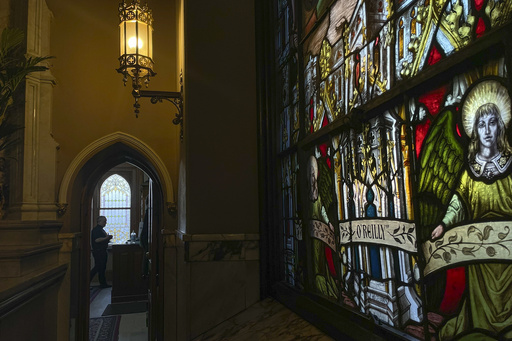Religion and politics intertwine in Reading, Pennsylvania, an old industrial city situated in a crucial swing state for the upcoming presidential election. The city has a historical connection to religious minorities, such as Quakers, and is the birthplace of Daniel Boone, a famous figure. Today, Reading boasts a significant Latino population, with the first Latino mayor, Eddie Moran, holding office. Moran acknowledges the potential influence of the Latino vote in determining the election outcome, recognizing the shifting demographics of the city.
Reading is characterized by a diverse spiritual community, with Catholic churches dominating the skyline alongside evangelical and Pentecostal congregations. The Latino community adds to the city’s vibrancy, with Latino-owned businesses and cultural influences evident throughout. The residents take pride in their political impact, with a Pew Research Center survey revealing that Latino voters believe in the efficacy of their votes.
Immigration emerges as a pivotal issue for some voters like Luis Hernandez, a Puerto Rican native, who supports Trump due to concerns about the border crisis and changes in immigration policies. Other voters, like German Vega, emphasize issues such as the economy, immigration, and abortion, aligning themselves with Trump based on his perceived qualities and policies. However, some individuals, like Pastor Alex Lopez, maintain a neutral stance and prioritize their faith over political affiliations.
Reading, once synonymous with the iron and steel industries, has experienced a resurgence, now home to a predominantly Latino population with a growing political influence. With candidates recognizing the city’s economic and political significance, efforts are underway to engage Latino voters, including the establishment of a “Latino Americans for Trump” office. Mayor Moran urges political candidates to engage with the community, stressing the importance of addressing their concerns.
Religious leaders in Reading are increasingly involved in politics, leveraging their influence to mobilize their congregations to participate in the electoral process. The community, exemplified by the First Baptist Church hosting a Latino congregation, emphasizes the civic responsibility of voting. While differing in their political preferences, residents like the Pagans advocate for active civic engagement and approach the election with a focus on human rights and well-being for all individuals, regardless of party affiliation.


